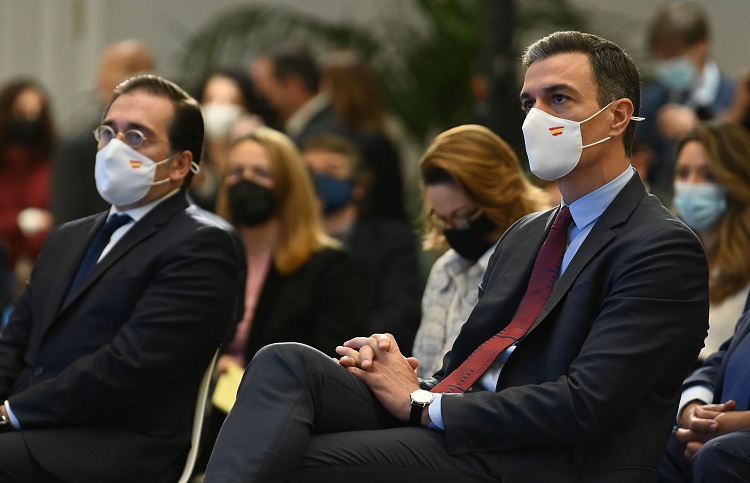Eduardo González
The State Secretary for the European Union, Juan González-Barba, said yesterday that the European Next Generation program for economic recovery from the COVID-19 crisis is presented as a “transformative” project for the economic and social development of the EU and “a unique occasion that probably will not be repeated.”
“The European project is either democratic or it will not be” and, therefore, it is necessary to “convince citizens every day because without their impetus European construction would come to a halt”, said González-Barba during the presentation of the Report on the State of the EU. Europe in a period of transition, which is prepared every year by Fundación Alternativas and the German Friedrich-Ebert-Stiftung Foundation. In this context, the Conference on the Future of Europe should play a very important role because, “for the first time, not only are citizens being asked to vote, but a dialogue between citizens and institutions is being established directly”, he added during the event, held at the European Commission headquarters in Madrid.
On the other hand, González-Barba stressed the importance of the Next Generation program, a “transformative” project in which “we cannot fail, because if one fails, we all fail”. “It is a unique opportunity, which will probably not be repeated,” to “open up new economic perspectives” and to move towards a social Europe in which “no one is left behind, neither territories, nor citizens, nor people who have traditionally been discriminated against,” he continued. “That has to be the motto of the Europe we aspire to build,” he warned.
Likewise, the State Secretary highlighted “innovation in the areas of health” through the European Health Union, a proposal presented to the European Parliament by the European Commission at the end of 2020 to strengthen the health security system and the EU’s preparedness for crises and that, although in principle it only serves to “coordinate and support Member States,” it shows that, even “without modifying the treaties, much can be done with the present European legislation.”
In terms of security and defense, González-Barba warned of the need to “have a European force” that “does not make us dependent on others, such as the United States”, as has become evident with the recent withdrawal from Afghanistan. In this sense, he recalled that “the debate has been reactivated and during the French Presidency of the EU (first half of 2022) a summit on defense will be convened for the first time in the history of Europe, which will be a milestone in the future of Europe”.
Diego López Garrido
During the presentation of the event, the executive vice president of the Fundación Alternativas, Diego López Garrido, warned that the EU is currently facing a “period of transition and uncertainty” caused by “an unprecedented poly-crisis”, of a health, social, economic and “ultra-nationalist” nature, and which coincides with a period of “growth and dynamism” derived from the “technological and digital revolution”. “Europe must respond collectively” to all these challenges and, in that sense, the Conference on the Future of Europe can serve as a starting point for “a possible proposal for treaty reform, a topic that until now was taboo, especially in the fiscal field,” he added.
Likewise, López Garrido highlighted the “exceptional importance” of the European recovery funds and warned of the “insufficiencies” that still characterize the European project, in matters such as the social pillar, “the Union’s great unfinished business”; the Europe of health, because “when Europe intervenes in this area it works much better than when it is done State by State”; and defense. “There has not yet been an adequate EU response to events such as the disastrous exit from Afghanistan” and, therefore, 2022 is going to be “an important year”, with the defense summit in the first semester and the NATO summit, to be held in Madrid in June next year.
The event was also attended by the representative of the Friedrich-Ebert-Stiftung in Spain and Portugal, Luise Rurup, who said that the European project is “the best thing that has happened to the peoples of the continent in its long history”, after centuries of “hereditary enmities”. Europe is a “project of peace”, a “miracle in spite of its defects”, and the European Parliament is the “only directly elected supranational organization” in the world, but it “needs attention and care” to move forward, taking into account the “challenges that threaten democracy”, such as the rise of “populisms”. The Director of the Representation of the European Commission in Spain, María Ángeles Benítez Salas, also took part in the event and said a few words of greeting.







